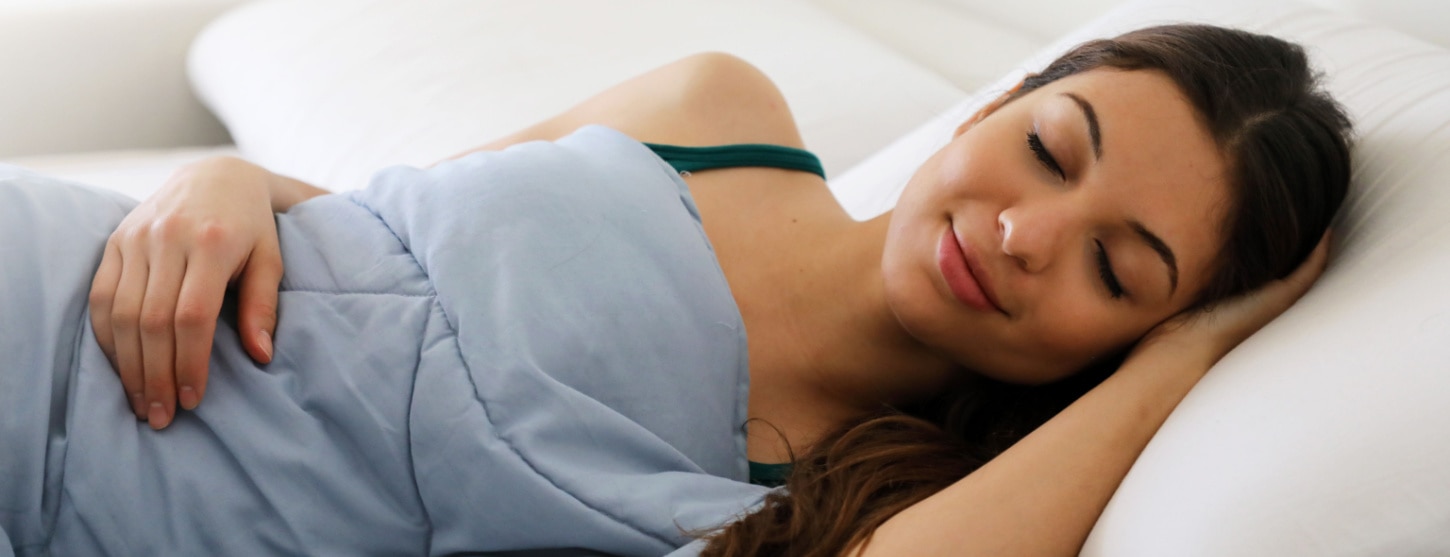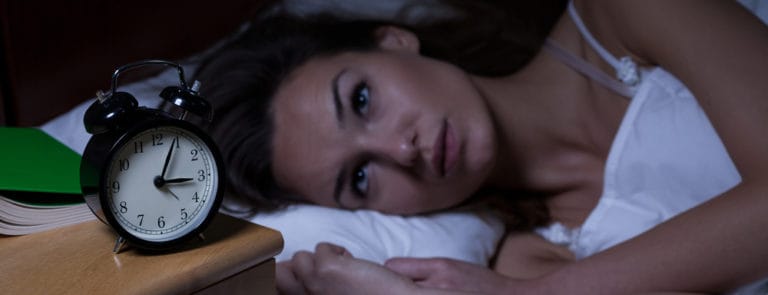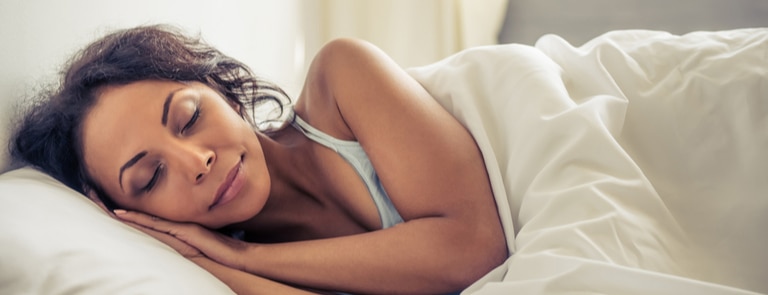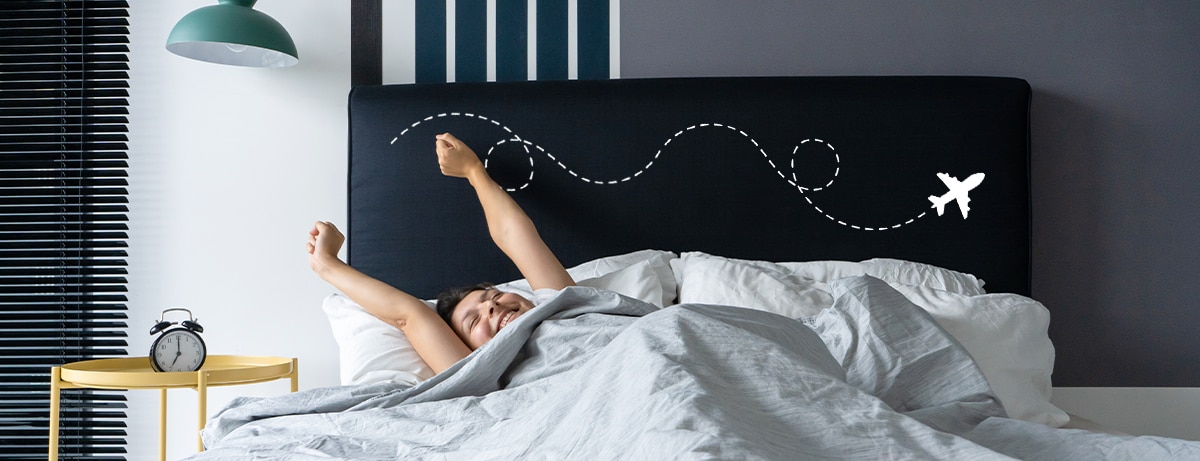10% off £35
What is sleep apnea?

Sleep apnea, or sleep apnoea, is a sleep disorder that causes frequent interruptions in a person’s breathing as they sleep.
Derived from the Greek word apnea, meaning “breathless”, sleep apnea is when your breathing stops and starts while you are asleep.1
This results in a lack of oxygen, which activates a survival reflex waking you up just enough to resume breathing. Although this reflex keeps you breathing, it also disrupts your sleep cycle.
This guide will highlight all you need to know about when somebody experiences sleep apnea and what treatment options are available.
Skip to:
Types of sleep apnea
There are three different types of sleep apnea:
Obstructive sleep apnea is where your breathing is stopped by a blockage stopping the airflow. This occurs when the muscles at the back of the throat relax and collapse during sleep.
This causes a blockage of the airway, so no air can reach your lungs, which creates pauses in normal breathing.2
These pauses can occur several times in one night and often last for a few seconds. You’ll automatically wake with a snort or snore to breathe again.
As the most obvious signs usually appear whilst you’re sleeping, it’s likely that you won’t be aware that your breathing is being interrupted. This is why the condition frequently goes undiagnosed.
Partners, family members or friends are often the first to notice if there are any pauses in your breathing or if you’re making gasping noises as you sleep.
This is where the brain fails to send the signal to inhale, causing you to miss a breath or multiple breaths.3
Unlike OSA, the airway is not blocked, but the brain fails to signal the muscles to breathe due to instability in the respiratory control centre.4
This is a combination of both central sleep apnea and obstructive sleep apnea.
Sleep apnea is defined by the level of severity, too:
- Mild sleep apnea – this is defined by someone who would have between 5 and 15 apnea or hypopnea (low breathing not sustaining your oxygen level) events per hour.
- Moderate sleep apnea – somebody with moderate sleep apnea would have between 15 and 29 events per hour.
- Severe sleep apnea – severe sleep apnea means somebody would wake up 30 or more times in an hour or stop breathing, and/or wake up 240 times or more during a full eight hours of sleep.5
Sleep apnea symptoms
Some of the most common symptoms partners may notice include noisy breathing and loud snoring, which might indicate someone has sleep apnoea.
But the most obvious sign to look out for is recurring pauses in breathing or breathing that is frequently disrupted by snorting or gasping.
Although episodes of sleep apnoea only happen when you’re asleep, it can significantly affect your day-to-day life.
The resulting tiredness often means you may find it hard to concentrate, experience memory loss, feel irritable, depressed and are at risk of falling asleep during the day.
This can be especially dangerous if you are driving.
It’s also important to note that the different types of sleep apnea can also present different symptoms. For example, night sweats and getting up to urinate are often signs that you could have obstructive sleep apnoea.6
Causes of sleep apnea: who is more at risk?
Sleep apnea can occur in anyone, from infants and children to older adults.
However, those older (for example, over 40) and those overweight or obese have an increased risk of experiencing all types of sleep apnea.
It’s also more common in people who are Black, Hispanic or of Asian descent.7
Additionally, people with large necks have an increased risk, larger than 43cm/17 inches.8
Those with large tonsils, adenoids, or tongues, narrow airways or a small lower jaw are also more susceptible.
Smoking and drinking alcohol before you sleep can also mean you’re more likely to experience sleep apnea.
Other factors that can contribute to sleep apnoea include women that have been through the menopause.
Post-menopausal women may experience snoring and OSA due to the changes the body is going through, which causes the throat muscles to relax more.9
Taking sleeping tablets, tranquilisers, and other sedative medicines may also relax the throat, leading to OSA.
People experiencing nasal congestion caused by nasal polyps or a deviated septum may also be more likely to develop sleep apnea.
What are the long-term side effects of sleep apnea?
As well as leaving sufferers tired, sleep apnea can result in a variety of health issues if left untreated.
These include high blood pressure, diabetes, stroke, heart failure, irregular heartbeats, and heart attacks.
Sleep apnea treatment
If you think you may have sleep apnea, make an appointment with your GP to discuss your symptoms.
They will usually be able to recommend suitable treatments. These could range from lifestyle changes using a device (such as a CPAP machine) to help keep your airway clear or, in rare cases, surgery.
A few simple changes can make a huge difference to less serious cases of OSA. These include giving up smoking, cutting down on alcohol and not using sedatives.10
Overweight people might also notice an improvement in their OSA symptoms if they lose excess weight.
Simply changing sleeping positions can also help people who only have sleep apnea when lying on their backs. Try lying on your side for a better night’s sleep.11
Continuous positive airway pressure (CPAP) devices or a mandibular advancement device (MAD) are two of the most effective options.
CPAP devices are small pumps that release a non-stop supply of compressed air that stops the throat closing.
Worn as a mask that covers the nose or mouth, CPAP helps relieve symptoms like tiredness and snoring.
For those with milder cases of sleep apnea, a MAD is designed to fit over the teeth and increase the space at the back of the throat.
This helps reduce the narrowing of the throat by holding the jaw and tongue forward.
Although lifestyle changes and sleep breathing devices are likely to have a more immediate impact on sleep apnea symptoms, some evidence suggests that vitamin supplementation can help with symptoms, too.
Studies have shown that taking a combination of both vitamin C and vitamin E may reduce the number of apnea episodes at night. The combination of these two supplements may also improve sleep quality and reduce the amount of daytime sleepiness.12,13
When is surgery recommended?
As a last resort, doctors may suggest surgery to treat severe obstructive sleep apnea caused by underlying issues that can’t be improved by lifestyle changes, supplements or devices.
Some of these include enlarged tonsils or adenoids, as well as severe obesity.14
The final say
Sleep apnea is a sleep disorder that causes interruptions to a person’s breathing while they sleep.
Symptoms can include noisy breathing, snoring and night sweats, as well as feeling unrested and fatigued the following day, difficulty concentrating and memory problems.
Treatment options include CPAP breathing machines, lifestyle changes and, in severe sleep apnea cases, surgery.
The advice in this article is for information only and should not replace medical care. Please check with your GP or healthcare professional before trying any supplements, treatments or remedies. Food supplements must not be used as a substitute for a varied and balanced diet and a healthy lifestyle.
Last updated: 13 January 2023
- https://www.nhs.uk/conditions/sleep-apnoea/
- https://www.mayoclinic.org/diseases-conditions/obstructive-sleep-apnea/symptoms-causes/syc-20352090
- https://en.wikipedia.org/wiki/Central_sleep_apnea
- https://www.mayoclinic.org/diseases-conditions/central-sleep-apnea/symptoms-causes/syc-20352109
- https://my.clevelandclinic.org/health/diseases/8718-sleep-apnea
- https://www.mayoclinic.org/diseases-conditions/obstructive-sleep-apnea/symptoms-causes/syc-20352090
- https://my.clevelandclinic.org/health/diseases/8718-sleep-apnea
- https://en.wikipedia.org/wiki/Sleep_apnea#Risk_factors
- https://www.sleepfoundation.org/articles/menopause-and-sleep
- https://www.winchesterhospital.org/health-library/article?id=20180
- https://www.cedars-sinai.org/programs/pain-center/conditions-treatments/sleep-apnea.html
- https://www.ncbi.nlm.nih.gov/pmc/articles/PMC2793876/
- https://pubmed.ncbi.nlm.nih.gov/20073373/
- https://www.sleepapnea.org/treat/sleep-apnea-treatment-options/sleep-apnea-surgery/














